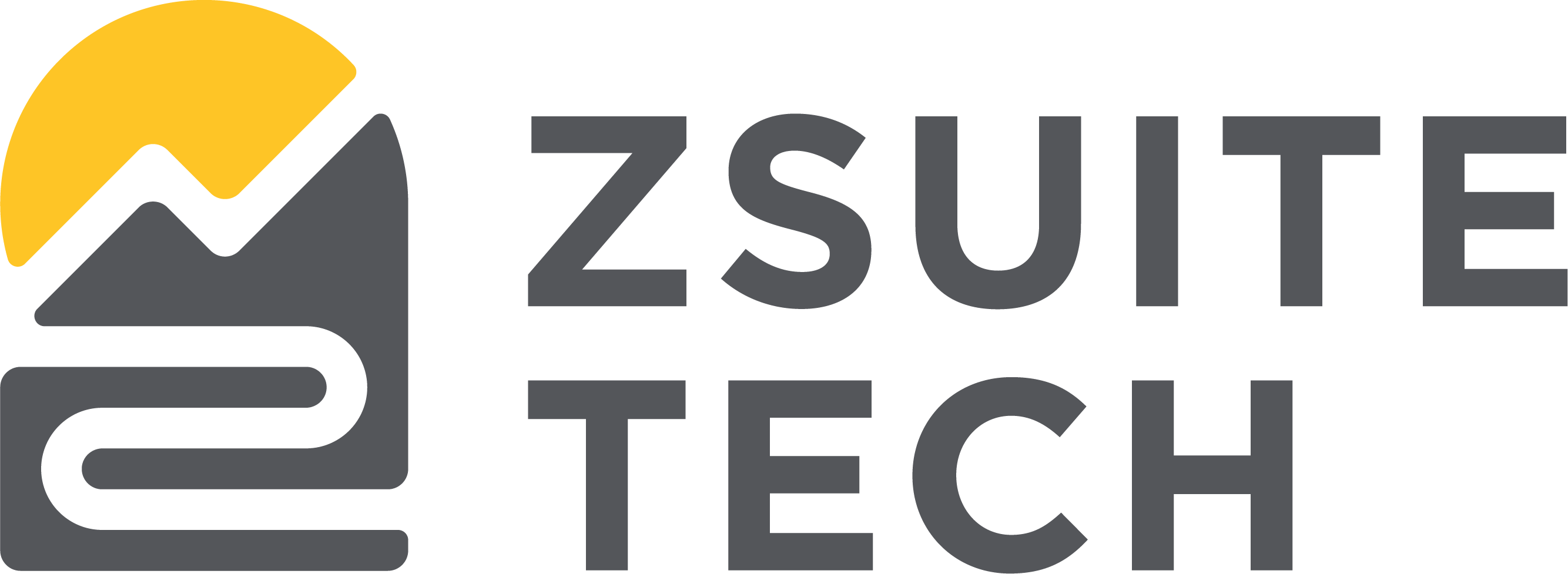
ZEscrow FAQ
We have a responsive and adaptive web-based application that can be viewed through any browser or on any device.
Our platform is hosted by AWS and we spin up a separate instance for each client, so there is no interaction between client data or environments.
Within the platform there are three levels of access.
- First, financial institution employees can access the portal you see in the demo. Employees can access all of the commercial organizations their institution has on the platform, and see the same information they see.
- Second, commercial customers can also log into the platform and access only their organization’s information. Here they can self-serve. They can open and close subaccounts, pull data, access statements, etc.
- Third, if there is a beneficiary attached to these accounts the organization can give them access to their own information.
We currently have multiple SSO integrations available as an option.
Our system is the system of record for all of the subaccount data.
The dollars within those subaccounts are in the holding account on your core. Our system comes on top of that account to be the system of record for the subaccounts. They never move to another bank or banking system based on actions in the ZEscrow platform. ZEscrow never holds dollars directly.
All the accounts are your accounts. The subaccounts are created and tracked on our system. This means you do not have to open or manage additional subaccounts as accounts on your core. You can hold everything in a master account and open a holding account or shadow account to support it. All activity originated on our platform is reflected in movement between these accounts.
You always own the relationship with the customer. We can support you in training and special use cases, but you own the relationship.
The financial institution is responsible for all compliance relating to their customers using this system. There’s no change in BSA or CIP policy when onboarding new clients.
ZSuite handles all daily OFAC checks on every active beneficiary within the platform. Those beneficiaries are not clients of the financial institution.
No, there is no limit.
On the financial institution side, the money moves between the holding/master account and the shadow account, as necessary. In the instances of opening and closing accounts money is moved by the bank into and out of the master account.
On the ZEscrow side, the tracking for money movements in and out of different subaccounts takes place, so your financial institution, your corporate partner and their beneficiaries can all see the balances for each individual subaccount.
Interest can be calculated by ZEscrow, and instructions to move from the GL account to the master account are passed to the bank in the daily transaction file/transaction exchange. ZEscrow tracks the amount of interest accumulated by each beneficiary, or beneficiary and partner/IOLTA board, if there is a split.
Every subaccount is issued a unique account number. When funds are transferred in and out of the subaccount via the ZEscrow platform, we are able to auto reconcile those transactions within the UI based on that unique account number.
ZEscrow is the system of record therefore statements will be auto-generated monthly by the ZSuite Tech platform. PDFs will be delivered and stored to the platform.
Tax reporting is a collaborative process between your financial institution and the team at ZSuite Tech. ZSuite Tech provides the annual interest data for both organizations and beneficiaries, and your financial institution verifies its accuracy. Once the information is confirmed, the required 1099-INT forms are mailed to recipients by ZSuite Tech and filed on your behalf.
After your financial institution reviews and sends the finalized interest data, ZSuite Tech submits the required tax forms (such as 1099s) to the IRS on your behalf.
No formal verification is performed on W-9 forms or data within the ZEscrow system. The individual submitting the form is responsible for ensuring its accuracy. However, some financial institutions may independently review the data and provide corrections to ZSuite Tech to be made within the platform.
The commercial customer accepts this pass-through responsibility in the Terms and Conditions that are required to use the platform.
Yes! We can do bulk uploads of any size, and recommend it for any addition or migration over 10 subaccounts.
ZRent FAQ
Because security is a top priority for ZRent, we have a number of protocols in place to ensure the safety of your data, beginning with the point of transit. All the ZSuite services are offered over a secure protocol HTTPS with a SSL certificate key size of 2048 bits. All of your PII (personally identifiable information) is stored within the database in an encrypted form, which then undergoes an additional layer of “masking” using a proprietary algorithm. For the protection of all our users, ZRent stores all passwords in one-way hashes.
In addition, ZRent is running behind a Cloud Based Web Application Firewall which protects against the most critical web application security risks, such as SQL injection, cross-site scripting, illegal resource access, remote file inclusion and other OWASP Top 10 threats.
The Client Support Team is available Monday – Friday between the hours of 9:00 am and 6:00 pm EST. Please note that we are closed on all federal holidays.
ZRent 2024 Holiday Schedule
| New Year's Day | January 1st |
| Martin Luther King Day | January 15th |
| President's Day | February 19th |
| Memorial Day | May 27th |
| Juneteenth | June 19th |
| Independence Day | July 4th |
| Labor Day | September 2nd |
| Columbus Day | October 14th |
| Veterans Day | November 11th |
| Thanksgiving Day | November 28th |
| Christmas Day | December 25th |
For landlord and property manager clients who are onboarding more than 25 units into ZRent we offer a feature called a “bulk import” that will allow you to easily import all of your properties, units, lease details and occupants into the platform. The process requires the completion and return of an Excel spreadsheet, in a preformatted template that will be provided to you by the ZRent Client Support Team. Our team will facilitate the completion of the spreadsheet and any additional documentation that may be required, with the entire process taking a matter of days. If you are interested in learning more or moving forward with a bulk import, please email the Client Support Team at zrent@zrent.net.
Yes, here's a short video. There will be more resources available after signing.
Implementation FAQ
As soon as the contract is signed, we will schedule the kickoff call.
- Executive Sponsor/Project Champion
- Project Lead/Project Manager
- Compliance Expert
- Business SME
- Data / Data Reporting Expert
- Marketing & Training Expert as needed
We have a dedicated implementation team who will be with you every step of the way.
- Safelist a short list of domains and ip addresses
- Setup SSH keys and SFTP
- Setup accounts
- Setup data extract; sample data information will be provided
- Interest configuration documentation
Client Success FAQ
The implementation and support team work very closely together. The implementation team will provide prelaunch training support and you will meet your postlaunch support team after completing implementation.
We will provide live training sessions on the platform specific to your institution. We have two versions – internal employee training and corporate partner training for anyone migrating or new to the platform. These are provided in tandem with your internal launch schedule and as your commercial partners onboard.
Our sales support can be reached by email at any time during your normal business hours.
We also have two self-serve Support Centers through Zendesk: one where your employees can access training videos and other materials, and one for your commercial partners.
We have print materials and messaging for you to use to sell the product. In addition we have a library of ongoing training materials on the different use cases, and a dedicated Client Success team who can join you for demos and trainings.
We provide remote training, training videos, and the option for our client support team to demo directly to your clients on an ongoing basis.
Commercial Escrow FAQ
The way we talk about escrow accounts can also be thought of as three-party accounts.
There are multiple customers (usually individuals) who enter into a contractual relationship with a business and give them money that has to be held for some length of time by the business. The business has a commercial account at a financial institution, usually a bank. So the three parties are the individual consumer, the business and the bank.
The bank holds the money in a business account, but the business needs to know how much money is held on behalf of each customer. One simple example of this is a landlord who is holding a security deposit for the length of time that a renter lives in a property. In some states it is legally mandated that the funds for each security deposit cannot be co-mingled, and interest must be paid to the renter on any money held at an institution. Our platform can handle all of those intricacies.
Attorneys, Landlords, Property Management, Municipalities, Law Firms, Real Estate Offices, Title Companies, Non-Profits, Healthcare, Funeral Homes, 1031 Exchanges, Resident Care, Merger/Acquisition, Bank Operating Systems, Construction, Medical Claims
These are frequently large numbers of accounts with high volumes of transactions.
There is a distinct cost associated with using the core for each individual account. Using our system greatly reduces this cost. Additionally, any account opened or closed on the core requires a visit to the bank by a business representative and additional work at the institution. With our secure online option both parties can avoid these manual steps.
The core cannot support complex interest configurations. With ZEscrow, commercial partners can create custom interest configurations to the subaccount level, calculating different interest rates, calculating and splitting interest between the beneficiary and commercial partner, calculating and splitting interest between the commercial partner and a third party, calculating interest rate changes based on length of time account is open or any other ways that compliance or contracts require that interest be split. The interest can be calculated and tracked per subaccount, as well as distributed from your GL.
Many commercial partners have specific needs around three party accounts from an interest calculation, tracking and distributing perspective. That is all simple with ZEscrow.
It is possible to do this without ZEscrow, but it is incredibly manual and time-consuming.
Additionally, with ZEscrow the commercial partner keeps a record at the financial institution of the beneficiary or owner for each of the dollars in the master account, which helps comply with ownership regulations for FDIC Insurance. This message is very relevant right now for reassuring commercial customers with large deposits and many beneficiaries.
In 2022:
- 44,000,000 rental units in US, median rent $2,305 – security deposit potential of 101B?
- 95 million homes sold, median down payment of $13%
- 449, 633 Law Firms in US ~44,963,300 subs (law firms x 100), average balance of $2000 means $89B in deposits
- 4 million funerals, average cost of $8K - $19B in deposits
In three-party accounts, the financial institution is the first party, the company (client) is the second party, and the company's customers or beneficiaries are the third party. This arrangement allows the company to hold and manage funds on behalf of their clients with transparency and accuracy.


